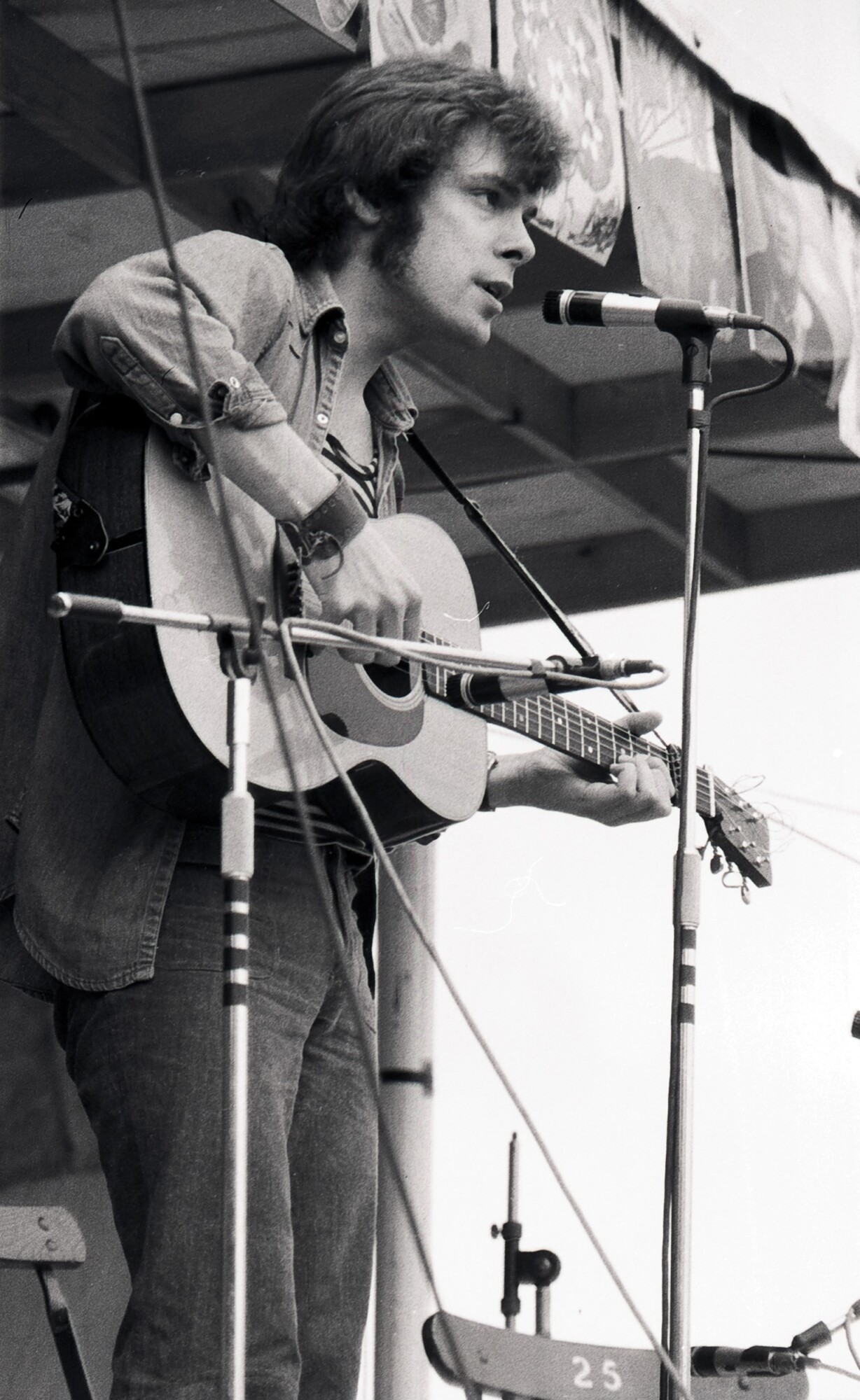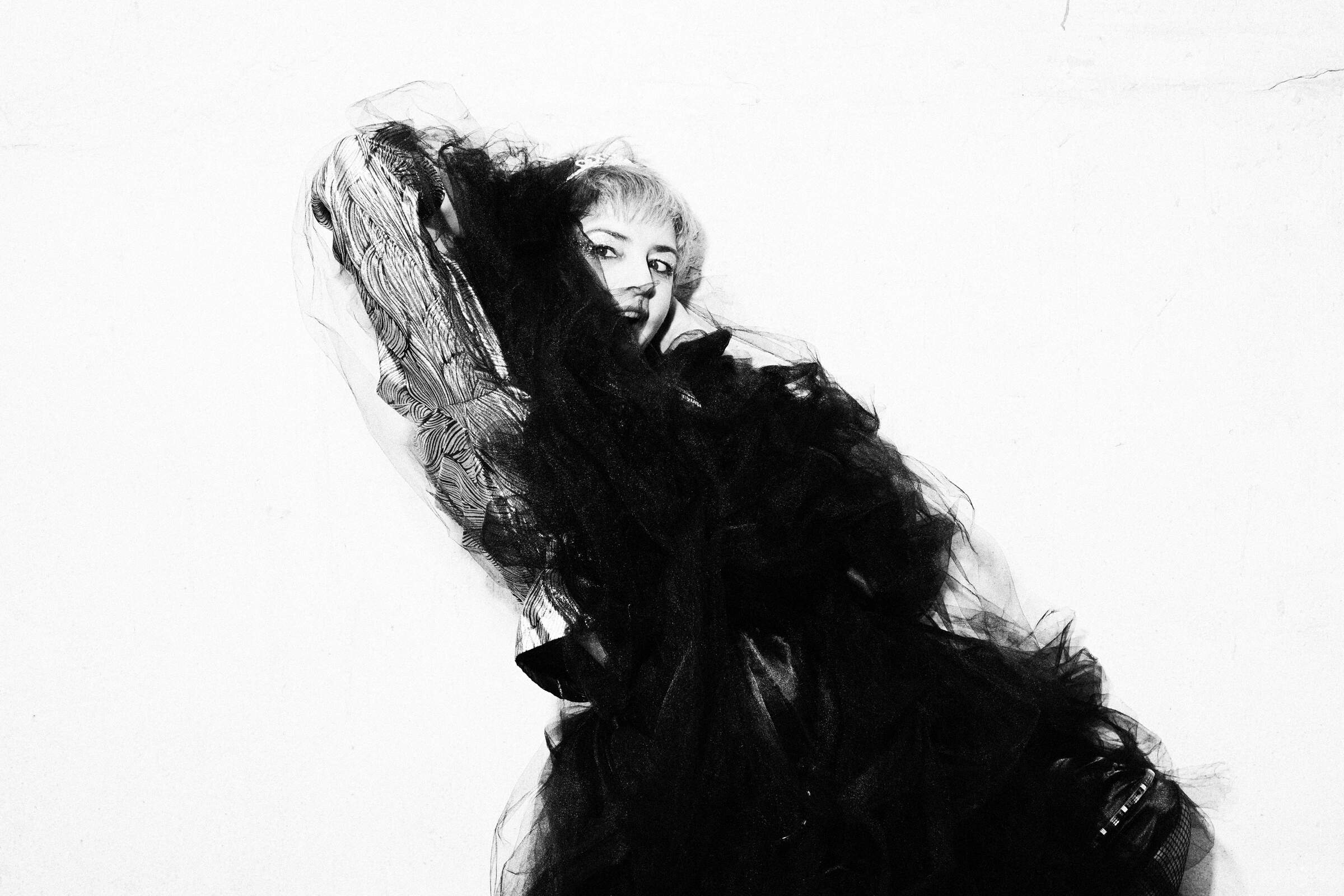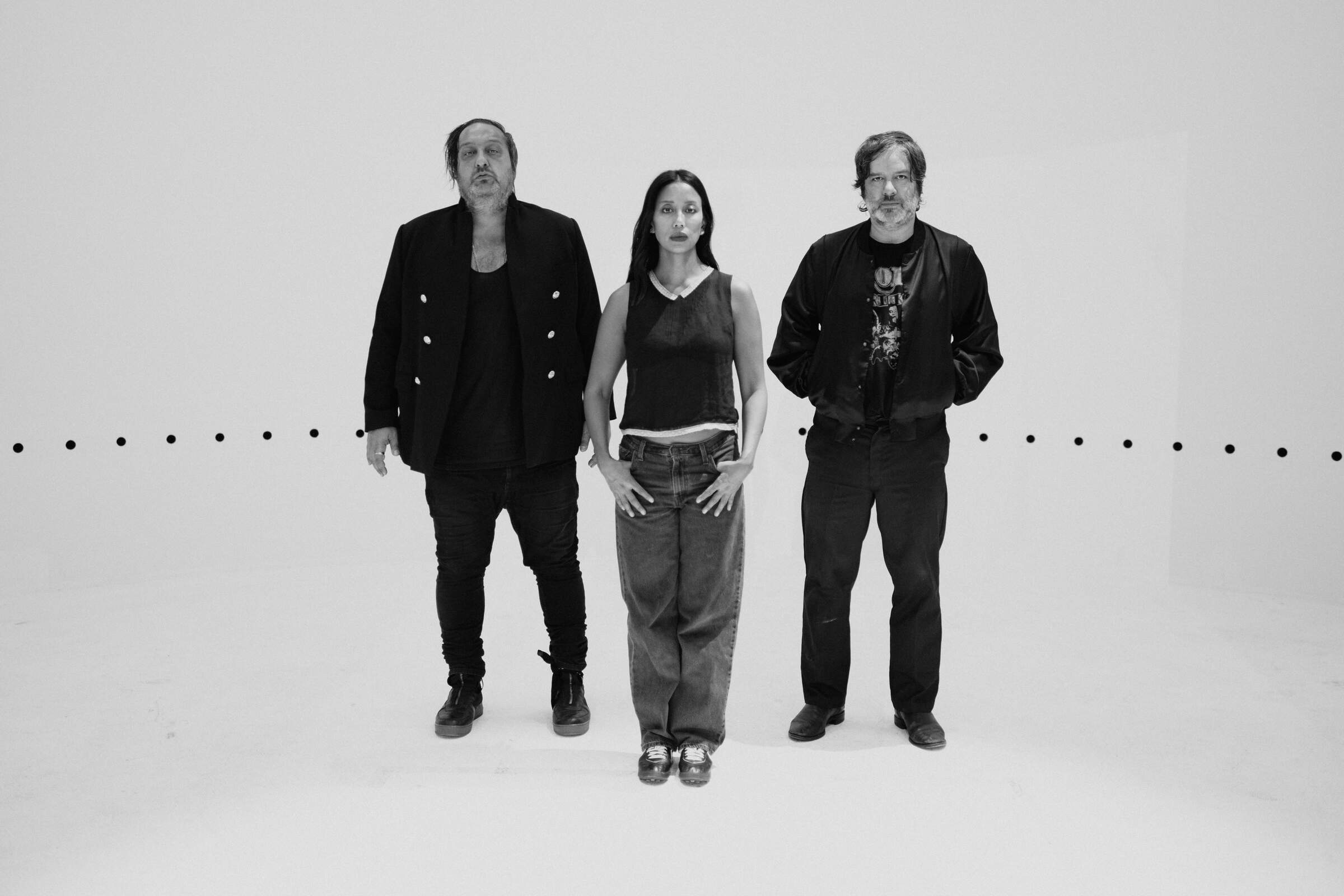Steve Tilston | Interview | “Each song is unique in its own way”
Steve Tilston is an English folk singer-songwriter and guitarist with a career spanning for several decades. In 1971 he released ‘An Acoustic Confusion,’ which offers a transcendent journey behind his unique lyrical world.
Tilston is widely recognised within the world of folk and contemporary music, as a writer of such classic songs as ‘The Slipjigs’ and ‘Reels’ and the award-winning ‘The Reckoning’. He is also a published author debuting with All for Poor Jack, a historical tale set in Bristol and the New World, full of colourful characters. Tilston toured with John Renbourn’s Ship of Fools, traditional singer Maggie Boyle (the classic recordings ‘Of Moor and Mesa’ and ‘All Under the Sun’), as guitarist with Ballet Rambert, with Maartin Allcock and Pete Zorn in WAZ! with Brooks Williams and with his daughter Martha. Plus collaborations with alt-country band The Durbervilles and old Bristol pals Keith Warmington and the late Stuart Gordon as the Steve Tilston Trio. His most recent project is Tilston & Lowe a duo with fellow songwriter Jez Lowe, producing ‘The Janus Game’ a CD of brand-new co-writes.
2021 saw the release of ‘Such Times’ and the continuation of the connection with Riverboat Records begun with ‘Distant Days’; Steve Tilson’s solo acoustic retrospective, from 2018. In ‘Such Times’ Tilston takes on the role of social commentator and storyteller; 15-tracks almost exclusively new material, recorded during the first national lockdown. The release coincided with the 50th anniversary of his debut album, ‘An Acoustic Confusion’ in 1971. After more than fifty years in the business Steve Tilson can still deliver the goods.
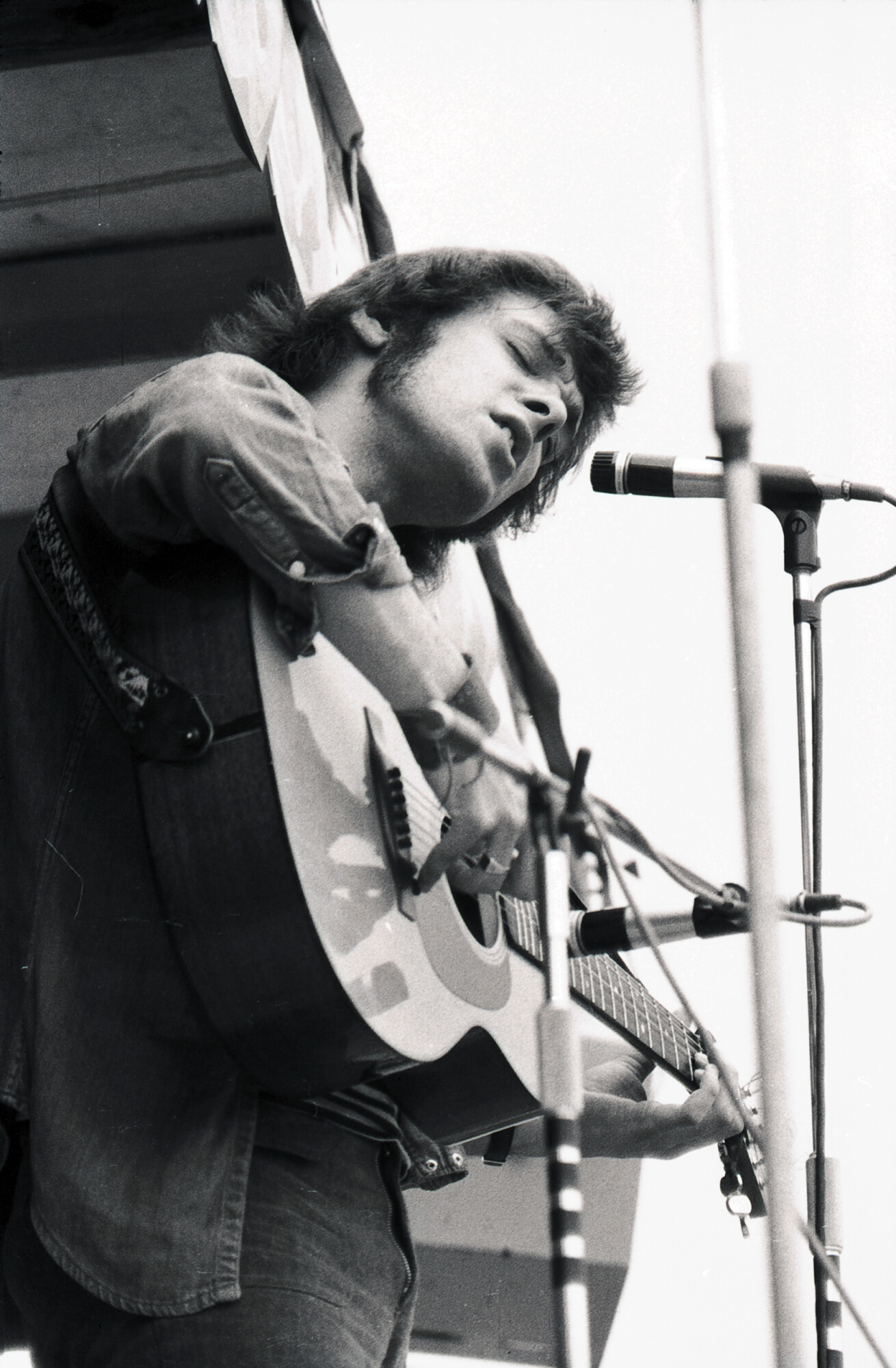
“Each song is unique in its own way”
Your latest album was released in 2021, in the midst of pandemic. Do you feel that it reflects the time in which it was written? How were you affected by it and what can you say about the songs on it?
Steve Tilson: I’d say that roughly half of the songs were written before the pandemic and those written during have a sense of those “such strange times” about them – hence the title ‘Such Times’. The opening song in particular, ‘Daylight Rising,’ is a projection of how things might be after the pandemic’s passing – of course it’s still lurking, so the song could also be seen as wishful thinking. I’m fortunate enough to live in a semi rural setting with easy access to the countryside so I was able to escape the lockdown situation to a certain extent and a few of the songs came to me whilst rambling in the hills behind where I live. I realised that a lot of folk were not so fortunate and my heart went out to those trapped in inner city tower blocks without access to nature. If it happened when I was in my 20’s that could’ve been my situation.
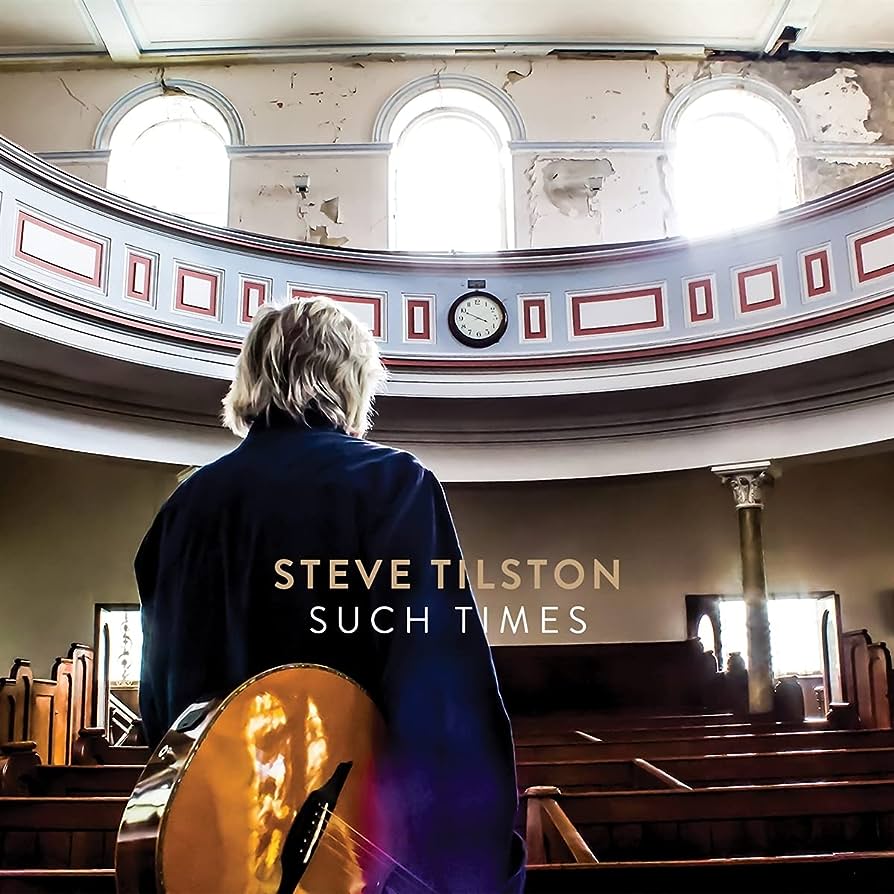
I guess it’s quite a different album than your 2018, ‘Distant Days’?
‘Distant Days’ is a retrospective album with songs spanning the whole of my 50 + year career. I wanted to present them in a solo unadorned setting with just me and guitar. Most of them were pretty much how I initially wrote them, but some were rearranged to accommodate changes in my voice register, or just because I thought I could improve them a bit. In some respects it was a pretty strange experience dragging the older pieces out of the metaphorical permafrost, revisiting memories of my younger self and a host of mistakes and self doubts that I was experiencing when I wrote them. I hasten to add that not all the memories were laced with doom and gloom and overall it was a rewarding experience.
How did you enjoy working on ‘The Janus Game’ with Jez Lowe?
I’ve known Jez for quite a number of years and it was pretty much understood that we both liked each other and valued each other’s music., but it wasn’t until we happened to both be touring the States at the same time and staying at a mutual friend’s apartment in Boston, Massachusetts that we got to really know each other. We were scheduled to play a gig as a double header in a club called Johnny D’s so we decided to do a few numbers together. They seemed to go down pretty well so we both agreed it would be good to do some more shows back home. It took a while for us to make it happen and eventually we wrote a bunch of new songs together and they became ‘The Janus Game’. Jez is a superb writer and performer, it’s always a pleasure to meet up and play with him.
Would you like to share some words about the three albums you issued on your own Hubris Records from 2008-2015. How would you compare them in between?
‘Ziggurat’ which was released in 2008 opens with what has become one of my best known songs ‘The Road When I Was Young’. There’s also ‘Pretty Penny,’ which is about the financial crash that happened that year, it was written in 2007 before it happened. There’s a bunch of songs I’m quite proud of as with ‘The Reckoning,’ which came out in 2011 and won me a BBC folk award for best song of 2012 with the title song. I think these two albums in particular represent me hitting upon a pretty creative vein.
How do you usually approach songwriting? Do you feel that the process changed during all the years of being an active musician?
I usually have one or two subjects I’d like to tackle and sometimes I’ll approach them “head on” and other times I’ll wait until a musical idea will set the ball rolling. Sometimes a song springs from a phrase that may suggest some inherent musical direction. Each song is unique in its own way and the writing process may differ slightly every time, for instance some songs are almost like doing a crossword puzzle in that you have a number of clues and you’re searching for the right answer in a rhyme or word. I have been known to abandon a melody entirely and write a new one, conversely I’ve kept melodies and rewritten a whole new lyric with a totally new subject. Ultimately there are no rules in songwriting, it’s just what works.
What makes a good song in your opinion?
A song that has something to say, but doesn’t reveal all on first listening. I also like melodies that musically can’t be second guessed before they get where they’re going.
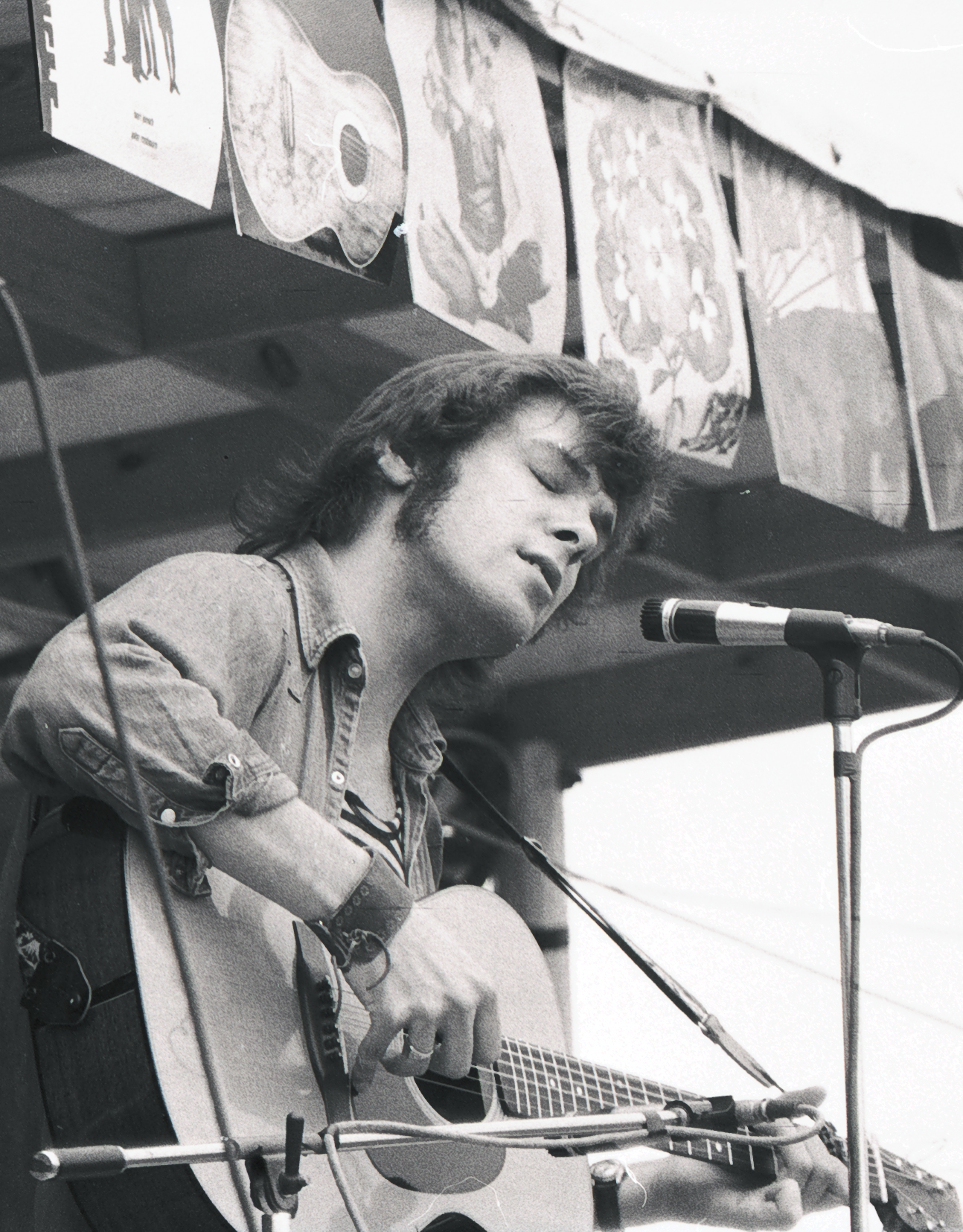
Was there a certain moment in your career that you had a “this is it” good feeling?
Not really, it’s been a procession of highs and lows. Obviously the path of musician/songwriter rewards me in lots of ways and I’ve been able to make a living for over 50 years, which I’m proud of, but I’ve not achieved what a lot of people would regard as success i.e. untold fame and riches. This is fine by me, I cherish my anonymity, which is probably something my younger self would not have ever uttered.
“Both Wizz Jones and Ralph McTell were very supportive of me”
How did you get involved with The Village Thing in the early 70s, when you issued your debut album, ‘An Acoustic Confusion’?
Both Wizz Jones and Ralph McTell were very supportive of me when I first became professional and moved to London. I was looking to record an album and they both steered me towards Village Thing Records, which was an independent label based in Bristol. I travelled there to do a gig at the famed Bristol Troubadour and on the strength of that show and Wizz and Ralph’s recommendation I was offered a contract.
What do you recall from working on the album? Tell us about the musicians involved with it and the reception after it?
‘Acoustic Confusion’ was recorded, pretty much, on a shoestring budget, with everything, both solo cuts and ensemble songs, going down live onto a 2-track Revox reel-to.reel tape machine. The location was a farmhouse in the wilds of Gloucestershire during a cold winter of 1970. I wore a fur coat given to me by my maternal grandmother throughout – quite appropriate really as she was my most musical forbear, having played piano for silent films as a teenager. It was produced by Ian Anderson, engineered by Gef Lucena. I played a Yamaha FG180 for the sessions and the ensemble songs were mainly me on voice and guitar, Dave Evans second guitar and backing vocals, John Turner string bass, Keith Warmington harmonica and backing vocals. Pete Finch was on fiddle.
The album was very well received by the press and radio stations and ultimately led to me being offered a contract with Transatlantic Records, which was a much bigger, though not necessarily better set-up.
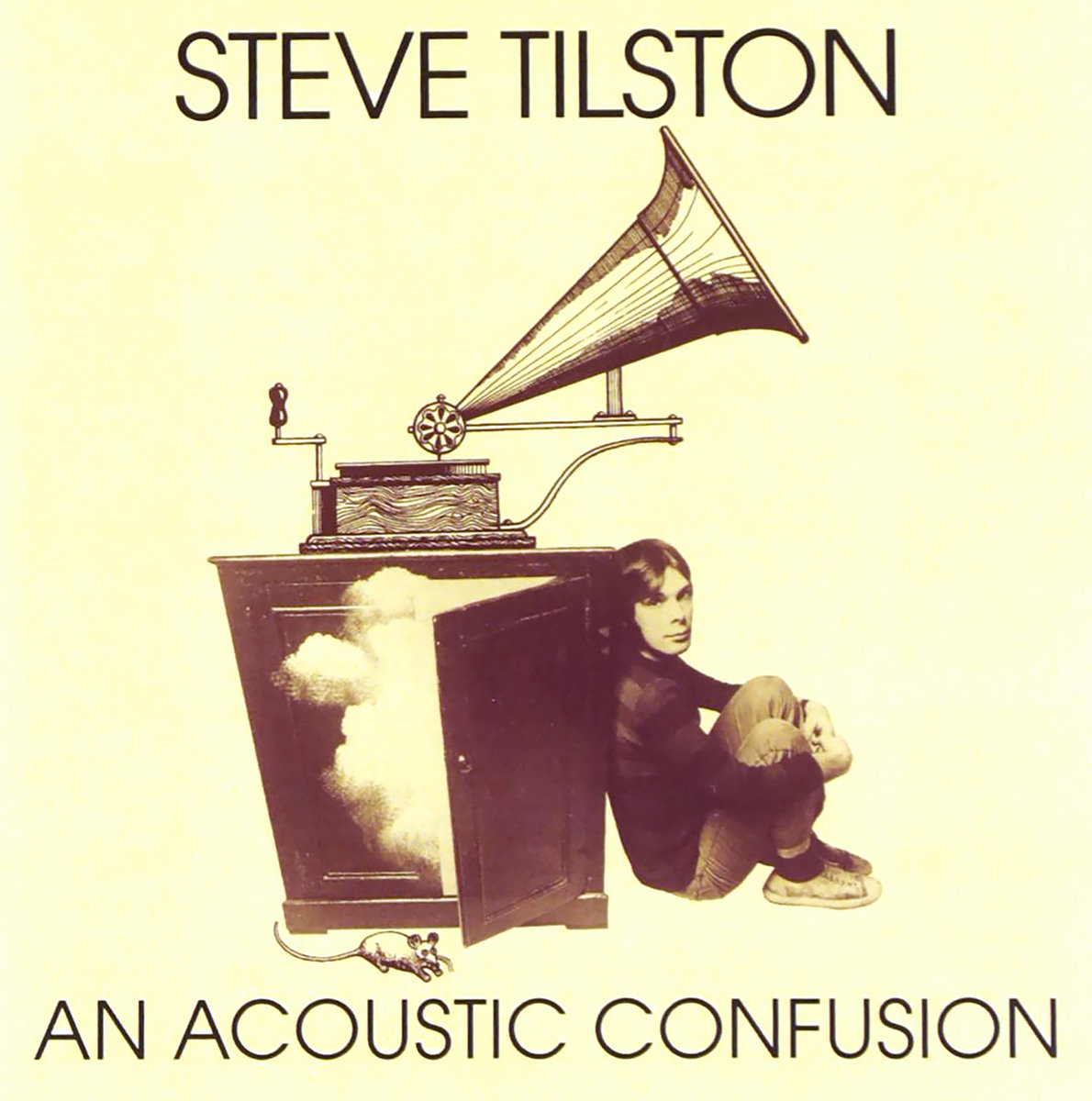
‘Collection’ wasn’t a compilation, but an actual album, right?
Yes, I realise the titles are misleading and there’s lots of things I’d want to change about that album, not least the title. However Transatlantic sold the album to MCA in the States so it was ultimately financially rewarding. Overall it was good working with the great Sam Charters on production, but it was done on a tight schedule and tight budget.

How do you recall working on ‘Songs From the Dress Rehearsal’?
Rupert Hine had expressed an interest in producing me, but Transatlantic had other ideas, so we agreed to part company and Rupert and I set about making a record independently. We began recording at Drummer Mike Giles’ studio which was in the New Forest. It was in 1976 during one of our hottest summers and we had to keep halting the process as fire engines could be heard racing around in the distance. Rupert played keyboards, John G Perry played bass, my old friend Keith Warmington added a bit of harmonica and another friend John Renbourn added some nice lead guitar work. The album ultimately came out on my own label Cornucopia Records in 1977.Overall this is my favourite album of my own from the 70s. Rupert Hine was a friend and a great guy to work with, it’s a shame he died recently.
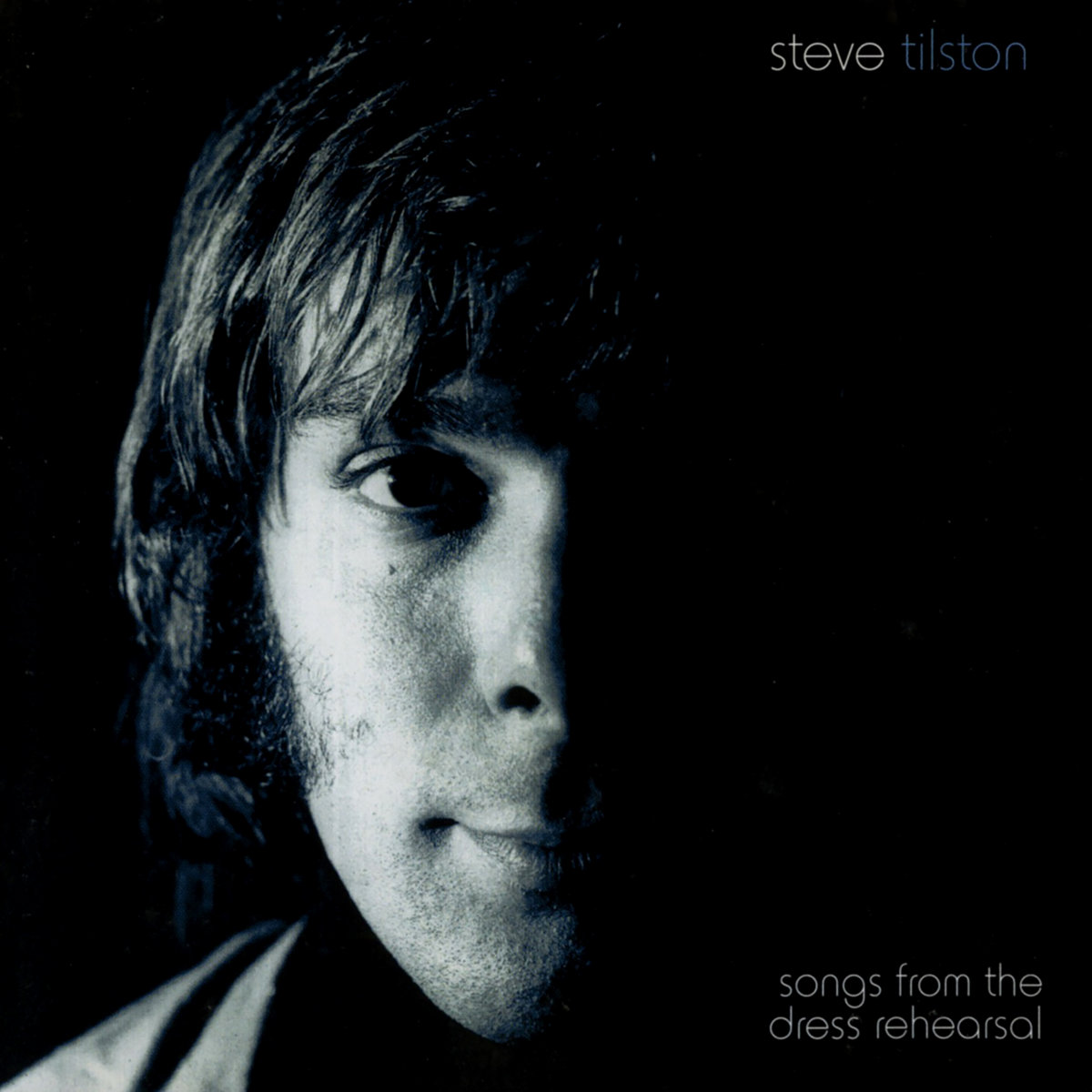
I would love it if you could tell us about the folk club you ran with Bert Jansch in New Kings Road, London.
The original idea was American guitarist Duck Baker’s. I seem to remember He, Bert and I were sitting drinking in the Half Moon Putney and the idea was formulated. Duck was the main instigator. This was around the time that Bert had his music shop in Fulham. It was called the Catch 22 club because Bert had to catch the 22 bus to get there. As you’d expect, we booked a lot of guitar players.
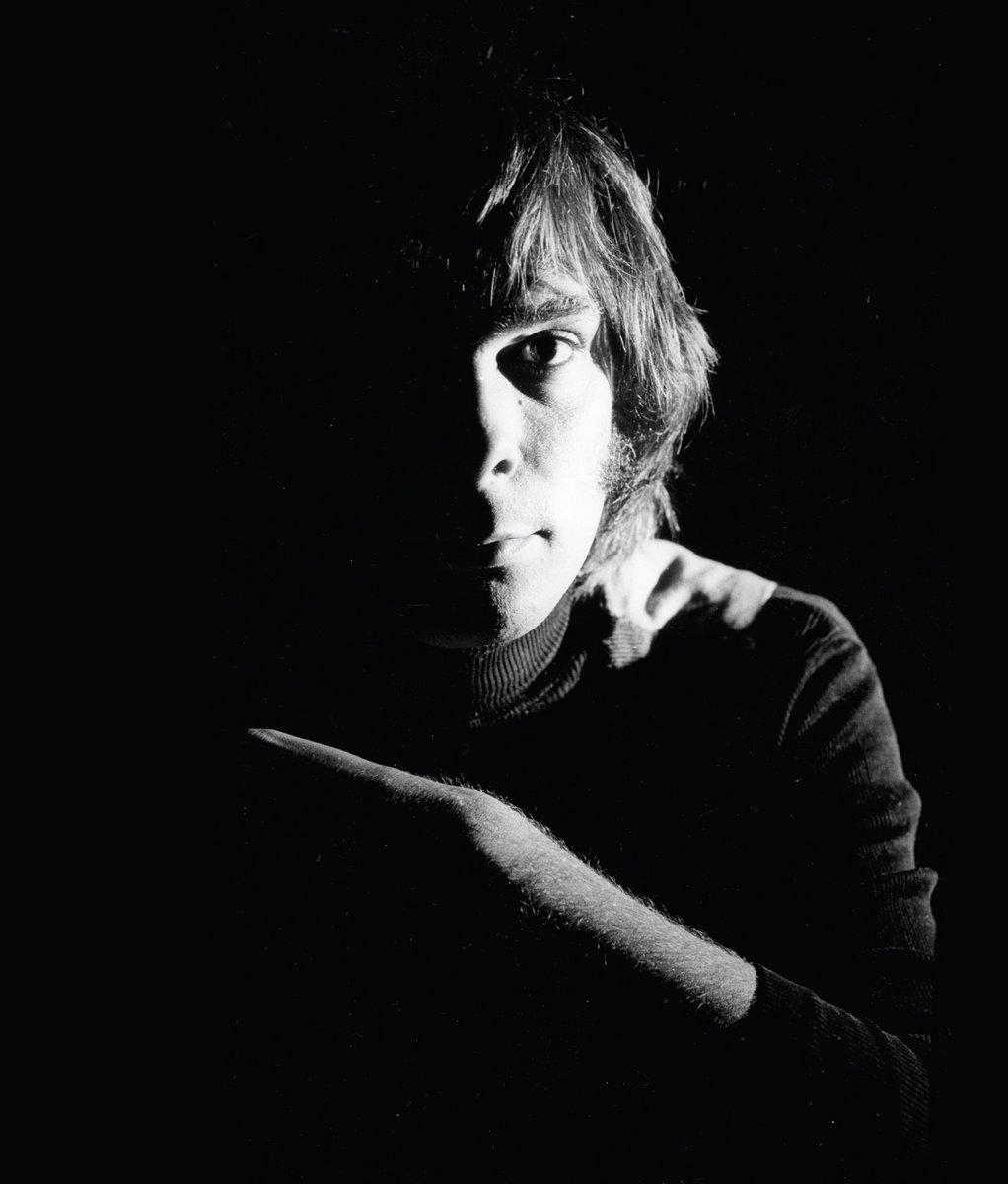
You also worked on the ‘In for a Penny … in for a Pound’ around that time?
That was a bit later after I’d moved back to Bristol which is where most of the recording was done, along with mostly local musicians. You’re correct in that some of the songs had been recorded ,just prior, whilst I still lived in London, with my friend Peter Bardens producing. In some ways it’s like ‘the lost album,’ in that I have no idea who has the original tapes, or whether they still even exist. I don’t have a copy, I think one of my kids borrowed it and I can’t remember which one.
Tell us about Sergeant Early’s Dream.
The Choreographer Christopher Bruce wrote this ballet with accompanying music gleaned from the Irish, British and American tradition called ‘Sergeant Early’s Dream’. I was a member of the on stage 7 piece ensemble that included my then wife, the Irish Traditional singer Maggie Boyle. In a way it was a forerunner to Riverdance and we toured Egypt, Jordan, Italy, Poland and UK several times. It was a great experience and the inter reaction between the dancers and musicians was very special.
How did your label Run River begin?
An American friend of mine, Fred Underhill, was living over here in Devon and after hearing the tapes of what became ‘Life By Misadventure,’ he was inspired to start up a record company, a bit like Village Thing in the 70’s, but Fred had a bit more finance behind him. I was made a co-director and we put out a bunch of very good albums from some great artists such as : Bert Jansch, Wizz Jones, Philip John Lee and of course John Renbourne’s Ship Of Fools.
What was the experience of playing with John Renbourn’s group Ship of Fools? The album was released on your label, how do you feel about those recordings today?
John Renbourn, who was an old friend, came to see a duo gig that Maggie Boyle and I played at Exeter sometime in the mid 80s. We were staying with him and after a few bottles of wine and lots of songs, John suggested that we should form a band with the addition of Tony Roberts on flute and pipes and John said his agent could fix up a tour of the States. Maggie and I thought it was a good idea and so we set to work building up a repertoire and ultimately we did a couple of US tours and went to Italy a number of times. The band was very well received everywhere we played and I’m still not sure why or how we stopped playing, but a move to Yorkshire for Maggie and I and the birth of our second child was probably a contributory factor.
Would you like to tell us about the music you played with your wife, Maggie Boyle?
Maggie, who sadly passed away in 2014, was from an Irish family based in London. She was steeped in the Irish tradition and was not too aware of other musical genres, so when she and I got together, incidentally we met at the Catch 22 club, it was a learning curve for both of us. Over a period of time we worked out a whole bunch of songs, both traditional and my originals and started to do gigs as a duo. We became quite popular on the UK scene and, as with Ship Of Fools, we toured the States and Italy a number of times. The pressures of being on the road and trying to raise a young family became too much and Maggie and I separated and divorced in 1997, although we still carried on doing the occasional gig.
What led you to jazz territory?
I have picked up many musical influences on this journey of mine and one of my very first was the jazz guitar player Charlie Byrd. I still love his album Blues Sonata. Blues was one of my first influences and that sometimes steps into jazz territory. It became apparent early on that there’s such a great musical interconnection.
How did your collaboration with The Durbervilles come about?
Dave Crickmore who engineered and produced my last few albums was a member of the band and I used most of the members as session musicians. It came together as much by accident as design and just seemed like a logical thing to do in taking the band format to a few shows.
Which songs are you most proud of? Where and when was your most memorable gig?
‘The Road When I Was Young,’ is probably my favourite as it’s a very autobiographical song. ‘The Slip Jigs And Reels,’ is my most popular song and has been covered by many other artists. Actually, there’s a song from the ‘of Moor and Mesa,’ first album I did with Maggie, that I’m really proud of called ‘Coronado and the Turk,’ but it is 10 minutes long so I don’t play it much, but musically and lyrically, for me, it goes to some interesting places. A concert in New York’s Central Park with Ship Of Fools was very memorable, but playing ‘Sergeat Earley’s Dream’ with the ballet Rambert at the Herrod Arraticus theatre in Athens was really very special.
What are some of the most important players that influenced your own style and what in particular did they employ in their playing that you liked?
Scotty Moore was the young Elvis Presley’s guitar player and hearing those early Sun Recordings as a young kid made me want to play the guitar. Chuck Berry and Buddy Holly were also influences. Davey Graham for his eclecticism, originality and overall playing technique, he influenced so many of us. Bert Jansch for the same reasons, but with the addition of his inspirational songwriting. Robin Williamson, one of the great originals who wrote some wonderful songs – his ‘October Song’ is one of my all time favourite songs. Bob Dylan for his immense body of work, so many great songs. His line “to dance beneath the diamond sky with one hand waving free,” is just so inspired, he’s written so many killer lines. Others are John Renbourn, Roy Harper, Jackson Browne, Randy Newman, Antonio Carlos Jobim and not forgetting Big Bill Broonzy the man who could really make the guitar dance. There are of course others, lots more, but I’ll stop there. Wait a minute, how could I not mention The Beatles and The Rolling Stones?
It must be wonderful to have your own daughter also being involved in music?
It certainly is. Martha is a lovely writer and has a large following. Recently she wrote, directed and acted in a film called The Tape, it was very well received. My son Joe is in a punk metal band called Random Hand, but he has released a couple of very good solo acoustic based albums. He’s a very nifty acoustic guitar player.
Is there any unreleased material you would like to see out?
Not particularly, most of the music I want to share is out there.

Thank you for taking your time. Last word is yours.
Just like to say many thanks for asking me to ramble on about myself and maybe one day I’ll get the chance to visit your country. I’ve been reading about it and it sounds fascinating and I bet that given your geographical positioning your music would be very rich and varied.
Klemen Breznikar
Headline photo: Steve Tilston at Camb Fest 1972 | Photo by Joe Gedrych
Steve Tilston Official Website / Facebook / Twitter / Bandcamp

